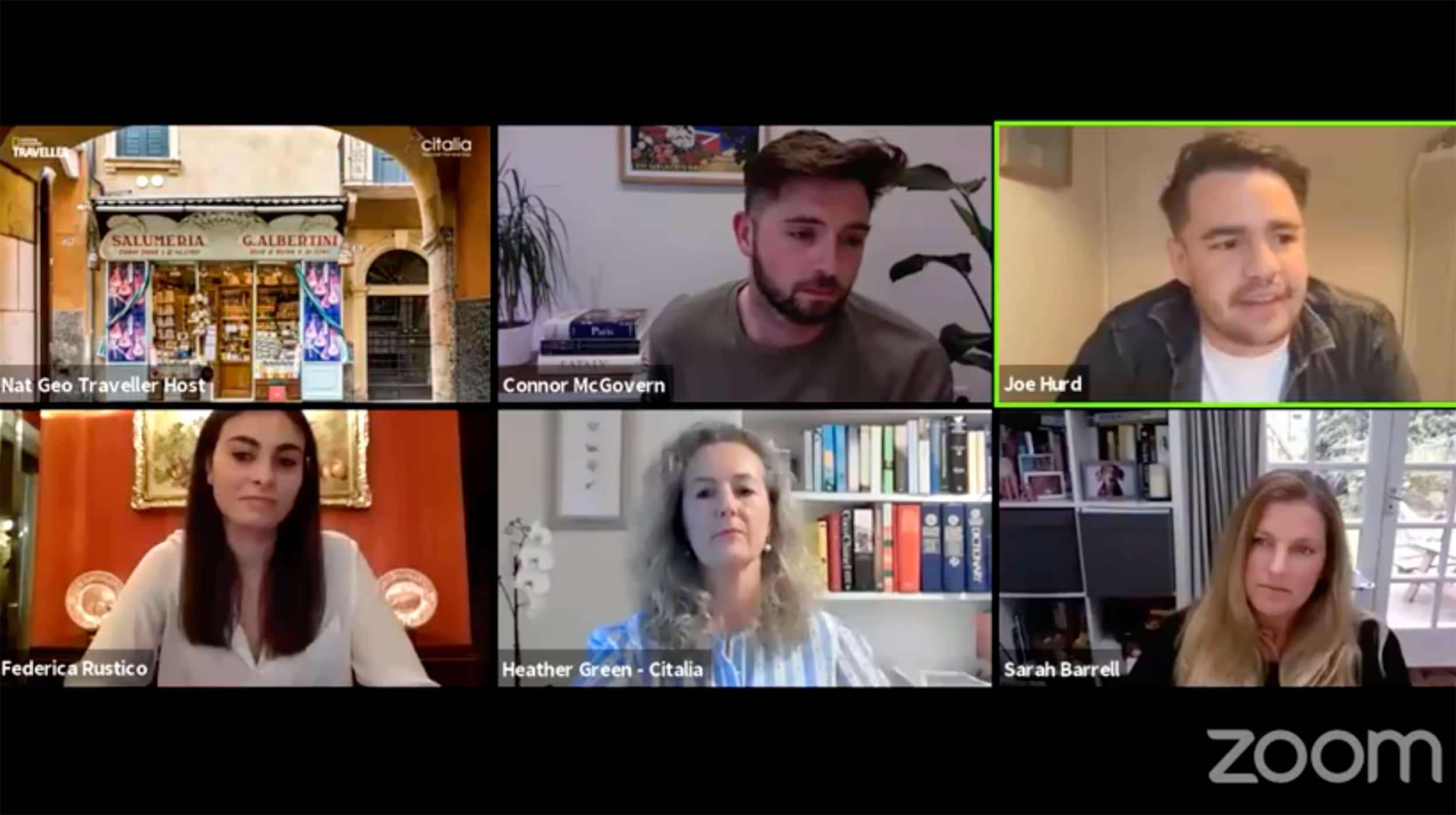
Seven things we learned from Travel Geeks online: cities, culture and cuisine of Italy
On 27 April, National Geographic Traveller (UK) hosted Travel Geeks online: cities, culture and cuisine of Italy, an event sponsored by Citalia to help the audience discover lesser-known sides to the much-loved country. National Geographic Traveller’s commissioning editor, Connor McGovern, moderated a discussion with the magazine’s associate editor, Sarah Barrell, travel blogger Federica Rustico, chef Joe Hurd and Heather Green, of Citalia.
Here are seven of the event’s key takeaways:
1. First choose the destination, then dive into local food
Italy is such a varied country that, no matter where you travel, you’re going to find regional cuisine, including traditional dishes that often have centuries-old heritage. “What I recommend is deciding where you want to go based on whether you prefer the seaside, the countryside or the mountains and then, based on what you choose, diving into the regional cuisine, rather than the other way around,” said Federica.
2. Discover the region of Umbria
A region that’s been living in the shadow of neighbouring Tuscany, Umbria is a great destination: think green expanses, hilltop towns and truffle dishes. If you’re heading there, Federica recommended discovering the borghi (small hamlets). “Stay in a town like Assisi, which is fantastic for the basilicas and cathedrals, and from there visit the nearby places like Montefalco, Spello or Spoleto,” she said.
3. Join a local festival
“When I think of a festival in Italy, I think of food, spectacle, colour, people,” said Joe. Throughout the year and during the summer months, in particular, you’ll find local feasts everywhere you go — from saint days and pali (contests) to sagre (food festivals). “Another thing you can do is go to a football match,” he added. “In Italy, a football game is a real festival, a little microcosm. There are stalls selling food, you can have a drink and get involved with the people.”
4. Get in on the wine action
Federica recommended searching for cantine aperte, wineries that open their barns and invite visitors to get involved and pick grapes. “Otherwise, you can contact the ones you’re interested in directly and they’ll surely allow to you to help out,” she said. “If you want to get involved later on, in October they often host dinners where you can meet the producers and understand the whole production process, which is really interesting.”
5. Stay in a traditional accommodation…
Stay in an agriturismo, a tenuta or a masseria — farmhouses and estates that are popular in regions including Tuscany and Puglia. “They’re usually family-run estates, and generally you’ll get very involved with the families, you’ll get to know them,” said Heather. “They grow their own vegetables, their own olive oil and wine. To stay in one of these properties is always a very good starting point.”
6. … or in an abandoned hilltop village
Alberghi diffusi is a hospitality concept that involves giving small, historic hamlets a new lease of life as scattered hotels, spread out across various buildings rather than centred around a main building. “They’re quite an interesting concept that saved some of these villages and hamlets, which would have otherwise been abandoned,” said Sarah, “so I’m a real fan of them.”
7. Learn Italian
Doing some online classes to get a better understanding of the language is a good starting point, said Heather. “If somebody wanted to progress with that, I’d suggest looking at two options,” she continued. “Florence, being the heart of the Italian language, would be a great place to go and study. Alternatively, go to some of the smaller cities, like Verona or Bologna, because you’re going to have greater opportunities to interact with the locals.”
Watch the full discussion on the National Geographic Traveller (UK) Facebook page.
Click here to see a list of upcoming events.
If your destination or company is interested in partnering on a future online event, we’d love to discuss any ideas you might have, or help you come up with the best way we can work together. Contact [email protected] or call 020 7253 9909.
